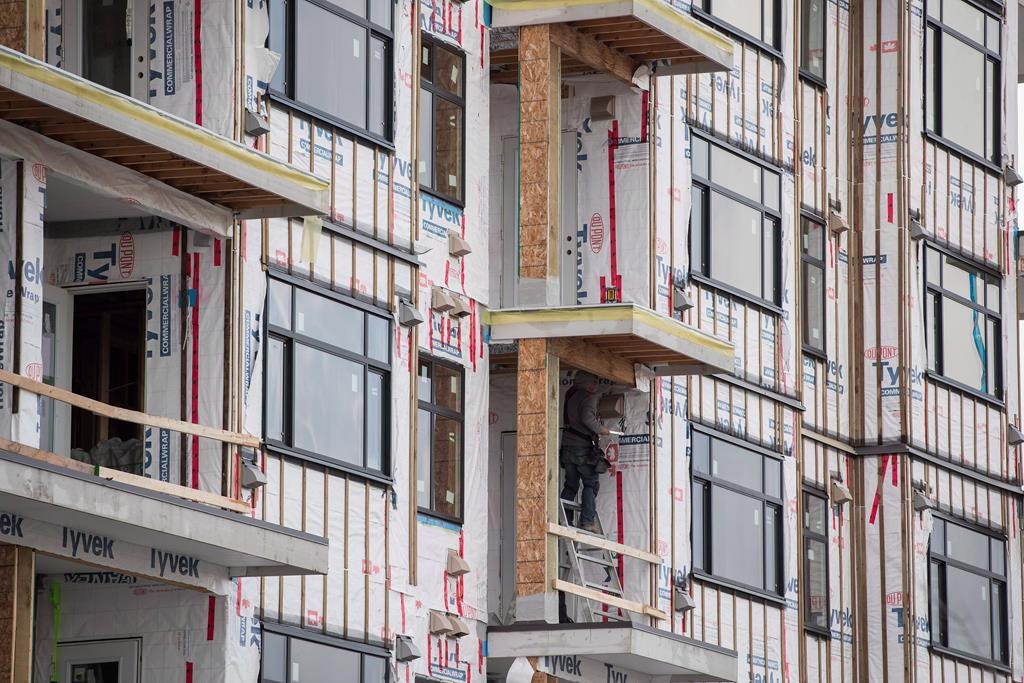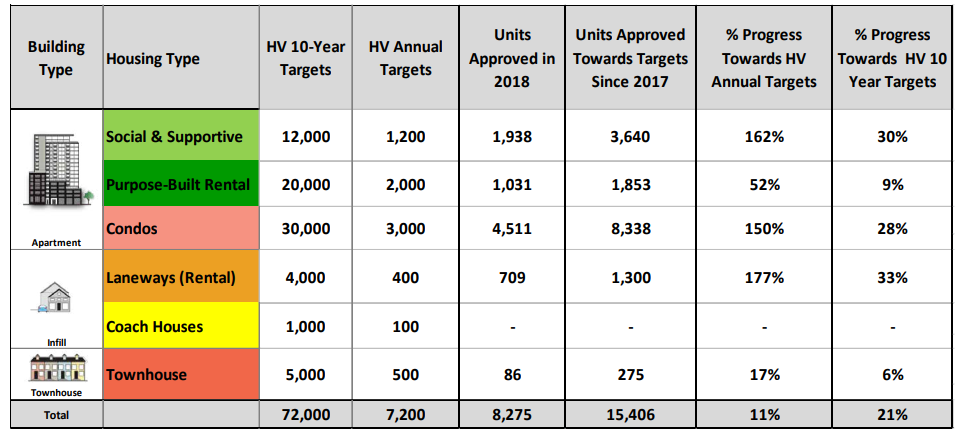The City of Vancouver has a ways to go to meet its ambitious housing goals.

That’s according to the city’s 2018 progress report on it’s 10-year-housing strategy.
WATCH: Vancouver releases new housing strategy

The nearly 200 page document is a deep dive into the city’s plan to create 72,000 new homes over the next decade.
Two years in, the city has approved 15,406 units.
The majority of units in the plan are purpose-built rentals and condos.

Get daily National news
The target for purpose-built rentals is 20,000, with just 1,853 approved so far. By the end of 2018 3,896 non-market housing units were in development, 1,584 of them actually construction.
Vancouver Mayor Kennedy Stewart said building rentals was an area the city would focus on in 2019, but acknowledged challenges remain.
“If you’re making less than $30,000 per year there’s not much any policy can do,” he said.
According to the report, not a single unit of purpose-built rentals earmarked for those earning between $30,000 to $50,000 was built in 2018.
Stewart said the incentive structure for developers does not motivate them to invest in rentals for that range.
“Perhaps there are some gaps in our incentive program and we have to bend to get more success in that wage band,” he said.
Councillor Jean Swanson said developers are not interested in building non-market rentals, and argued the city needs to rezone parts of Vancouver as rental-only.
“I can remember when there weren’t any condos. Rentals were all there was. It was fine, it was better than now,” said Swanson.
“Then a law was made that you could sell apartments and everyone started doing it because it was profitable, but the people who are profiting are not the ones who need housing the most.
The report found progress on condo approval in 2018 fared better than rental as 8,338 units were given the green light, representing 28 per cent of the 10-year total.
On Social and supportive housing, out of the 12,000 units planned over the next 10 years, 3,640 units were approved and only 1,135 have been built so far.
Stewart said while the city is making progress, it will need help from senior levels of government to meet its goals.
“The feds’ involvement will be a major election issue, at least in the city,” he said.
Swanson said she was unsatisfied with the results of the report, but ultimately agreed with Stewart that Vancouver cannot tackle this problem without major intervention.
“He’s right that we desperately need more money from the feds as well as the province and if they’re not going to give it to us they should at least give us the power to put in progressive taxation so that we can build our own housing, which is what we desperately need.”









Comments